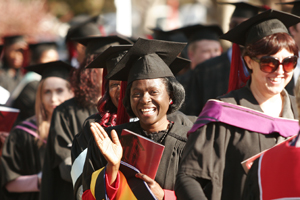Latest News Archive
Please select Category, Year, and then Month to display items
12 October 2020
|
Story Arina Engelbrecht
|
Photo Supplied
 Arina Engelbrecht from Organisational Development and Employee Well-being believes physical activity has a number of benefits for one’s health, including stress relief.
Arina Engelbrecht from Organisational Development and Employee Well-being believes physical activity has a number of benefits for one’s health, including stress relief.
Being physically active plays a big role in preventing the development of mental-health problems and in improving the quality of life of people experiencing mental-health problems.
Treatment for depression
Physical activity can be an alternative treatment for depression. It can be used as a stand-alone treatment or in combination with medication and/or psychological therapy. It promotes all kinds of changes in the brain, including neural growth, reduced inflammation, and new activity patterns are formed that promote feelings of calm and well-being. It releases endorphins – powerful chemicals in the brain that energise your spirit and make you feel good.
Physical activity can be very effective in relieving stress. Research in adults has found that physically active individuals tend to have lower stress levels compared to individuals who are less active. It also leads to improved sleep. When a person sleeps better and feels more rested, overall quality of life improves. They cope better with daily life stressors.
Reduce Alzheimer's risk
Regular physical activity can reduce your risk of developing Alzheimer's disease by up to 50%. It can also slow down further deterioration in those who have already started to develop cognitive problems. It stimulates the brain’s ability to maintain old connections as well as to make new ones.
A study asked people to rate their mood immediately after periods of physical activity (e.g. going for a walk/run, cycling, doing housework) and periods of inactivity (e.g. reading a book or watching television). Researchers found that participants felt more content, more awake, and calmer after being physically active compared to after periods of inactivity.
In conclusion, people who are physically active feel a sense of well-being, feel more energetic throughout the day, sleep better at night, have sharper memories, and feel more relaxed and positive about themselves and their lives.
“Being physically active not only changes your body, it changes your mind,
attitude, and your mood.” – Arina Engelbrecht
Winter Graduation spreads a glow of pride
2014-07-03
 |
The 2014 Winter Graduation spread a glow of pride across our Bloemfontein Campus.
During the first session on Wednesday 2 July, the School of Open Learning conferred 612 diplomas and certificates.
Hazel Motsoeneng, District Director of Motheo in the Department of Education in the Free State, offered a powerful message to the graduates. “Teaching today is about reaching learners. The world of the future will not be changed because of the money you made, or the car you drove. The world of the future will be changed because you touched a child’s life.”
She reminded the graduates that “teaching is still a labour of love.”
Stafford Masie, the former general manager of Google South Africa, addressed 473 graduands on day two of the graduation ceremony.
“If you want to grow as an individual, realise that there are more people outside your immediate environment than inside that can help make you a better person. Take the opportunity and get exposed,” Masie said.
He added a few bits of advice:
• Be unique, don’t just follow others’ creations.
• The focus is no longer on me, me, me, but on we, we, we.
• You have the opportunity and the skills set. Don't just do things, do great things.
• True innovation happens when people are having fun.
• Work on stuff that really matters.
Prof Jonathan Jansen, Vice-Chancellor and Rector of the UFS, conveyed a special message to the graduates. “Getting a higher degree comes with high expectations of who you are and how you conduct yourself. A higher degree at Kovsies means that you are a better person, not only because you received a qualification, but also because of your human capacity to love and embrace.”